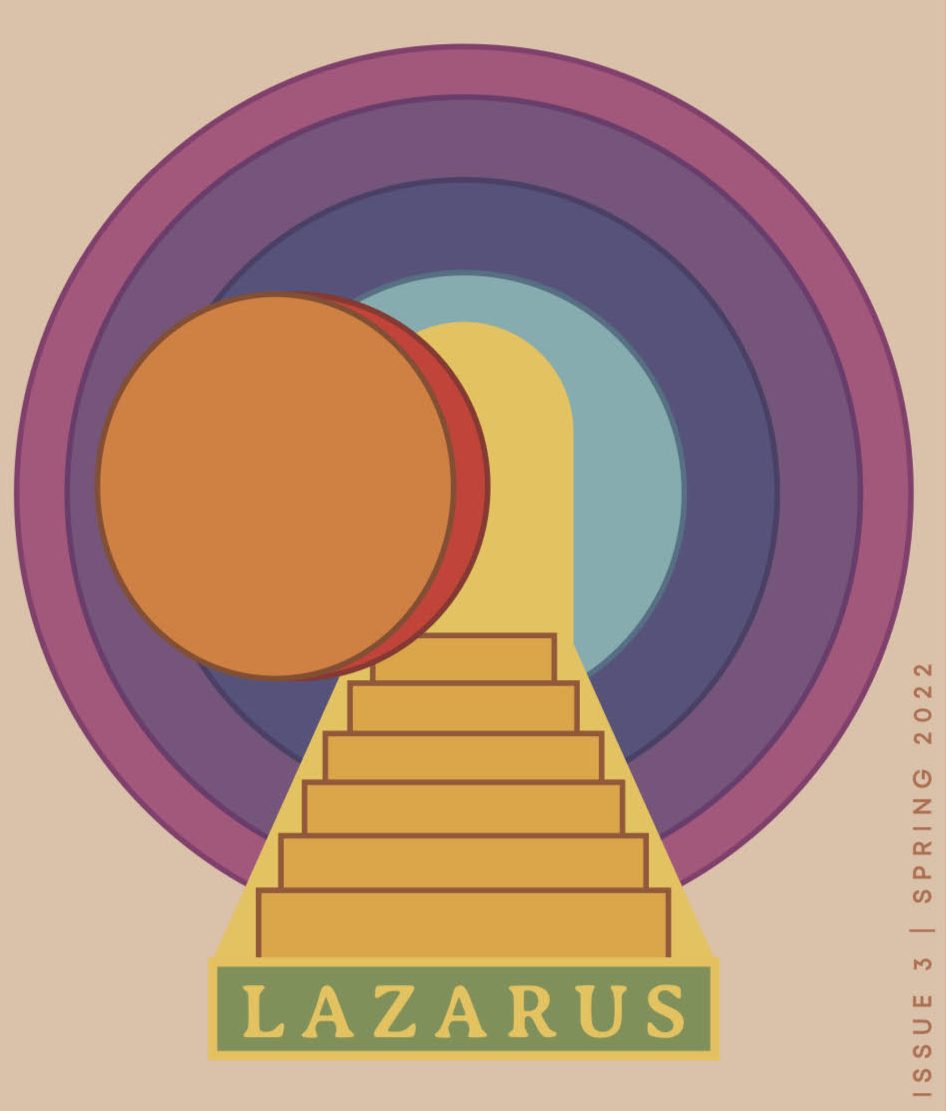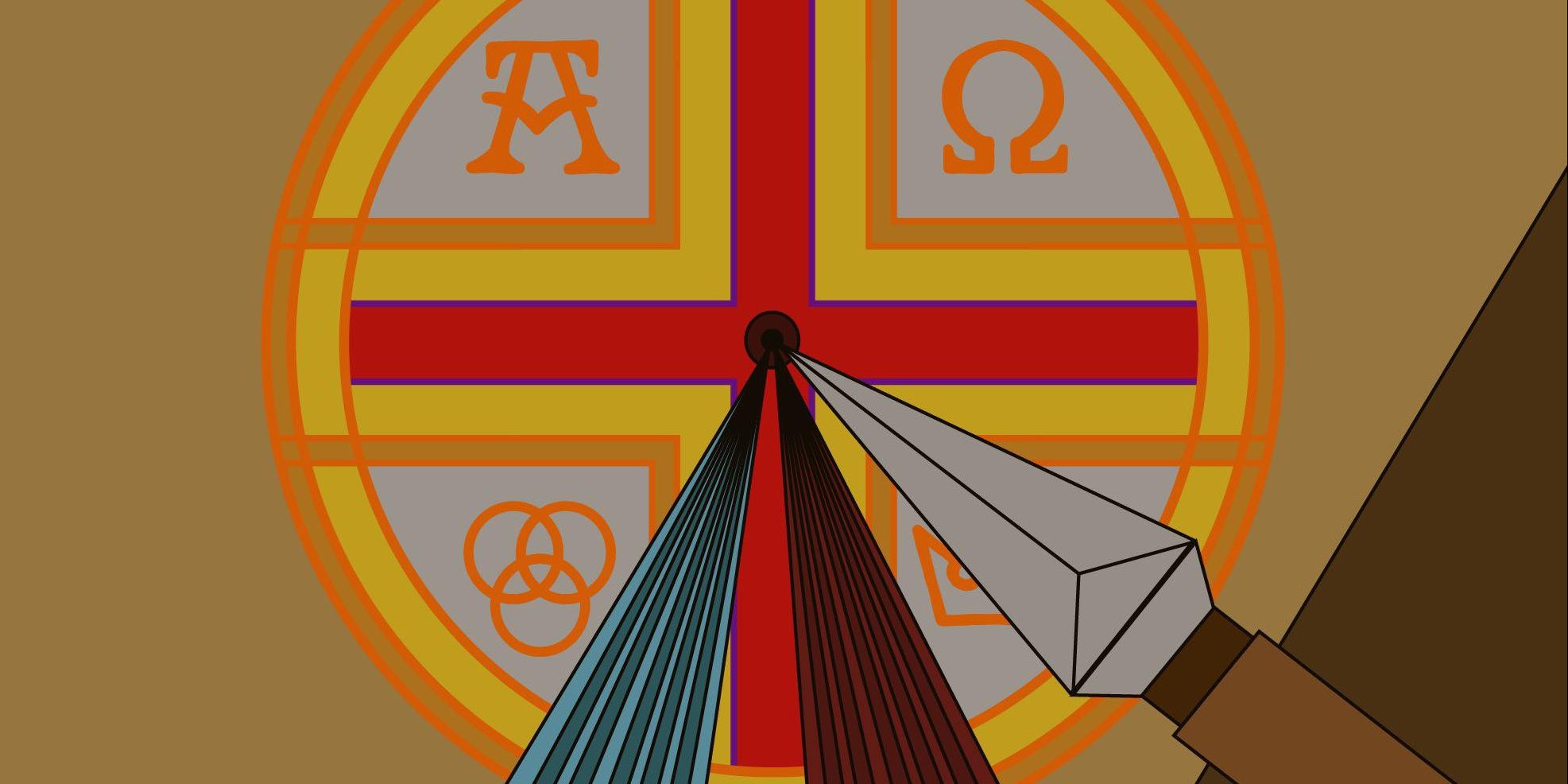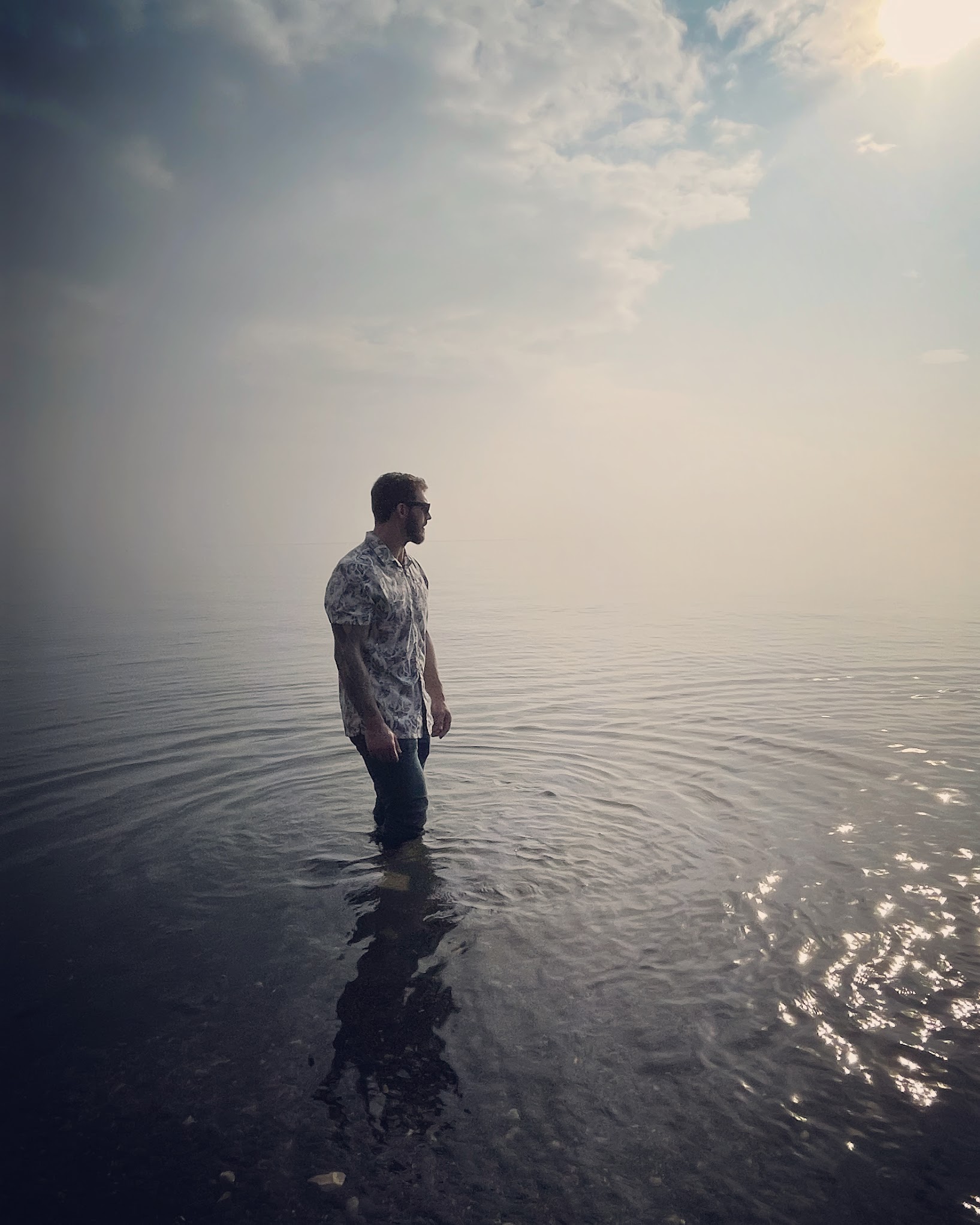
An Interview with
Myles Hudson
conducted by Joshua Mckie
co
To segway into something that would relate to both the journal and to self care–does religion play any role in your self care? That’s a complicated question. I was raised Seventh Day Adventist and for people who don’t know what that is, it’s a kind of denom- ination on the Protestant end of things. Its primary tenets are that you have to worship on Saturdays and that you need to anticipate the coming of Jesus Christ at all times. It was inter- esting for me to grow up in that because doc- trine was very strict growing up and I didn’t really have a whole lot of time to develop my own beliefs until the middle of high school. That’s when I started exploring other denom- inations and so I left the church in around se- nior year and this past spring I got involved a little bit in an Episcopalian in a church on 51st and Dorchester. It’s a really nice church and I haven’t been baptized in the church yet be- cause I’m still considering options. And while its not a forefront role it’s definitely playing a role in my life right now.
What does religion do?
For me it’s a way to keep myself grounded. I attribute a lot of it to the strictness of doctrine I grew up with. I’d say I attribute a lot of it to the strictness of doctrine I grew up with. I’d say being without religion–there’s something that feels empty within me and it varies for other people but personally I feel like that’s something that needs to be there for me to be fulfilled. Whether or not I actually practice that is a different question but at a minimum for me it feels a necessary place in my life. And whether that’s going to church every Sunday, or reading up on christian news every now and then, or opening up my Bible when I have the chance. But yeah I just think it’s important.
Could you describe the religious landscape from where you grew up to Uchicago’s reli- gious landscape? What are the differences (if any) and how do you deal with them?
Oh very different. My home community was very religious. My dad is a very religious person. My mom is slightly less religious but I grew up in a very large family where everybody would say “God bless you” or “I’ll pray for you” and seek out things to pray for each other for. And it’s very different from Uchicago where if I tell somebody “I’ll pray for you” they’ll be like “What the hell.” At home it was expected that religion would come up in conversation some- how even if it was just flippantly but I feel like here it’s almost like people have to out them- selves as Christian which i find very odd. And I don’t talk about religion much but when I do I find that people are surprised that I’m even moderately religious.
Why are people surprised? Why do these two different comunities view religion in such different ways?
I think people find it weird for me for one be- cause I am a gay male. It’s not common for many gay males to be religiously affiliated in any way at least with respect to Christianity. I’d say also because so many people don’t talk about religion that for someone to bring it up in a non-intellectual manner just surprises people. Most people don’t go “Oh you’re Christian. I’m gonna push you away,” but they are surprised. And I think the root of that difference at home is that in Georgia– well you know Georgia’s a very red state it has Christian values imbued throughout its whole population. Even if you don’t view yourself as Christian you’re still go- ing to reference God at some point. The fact of being in that kind of setting. Whereas here I feel like so many people are used to being able to remove themselves from God that I feel like if somebody comes up to them and says they’re Christian it’s a shock to them.
How should religion affect the way people engage in politics?
As far as religion in politics goes I found that
if religion informs my politics that I’m never going to be able to challenge my views on certain things as this is a facet of my life that almost needs to be doctrine focused that policy won’t budge. Like if someone’s trying to challenge a policy perspective and if religion is a core in my policy perspective, then it’s not going to do much as far as swaying me. Whereas if I separate religion from my politics then I think I’ll be able to move in a certain di- rection informed with politics and I’ll still have that grounding on religion but I understand that politically things matter on a much larger scale. And with respect to the rest of the country I don’t think religion should have much of a role at all in informing peoples’ politics. No more than if there are fundamental moral aspects that overlap with the country’s general moral code, then that might be a reasonable way to let religion affect your political views and asides from that I don’t think it should have much of a role.
There are people who navigate the world through religion. Should they take on that approach?
I have found that even if religion is at the cen- ter of you being that doesn’t mean it’s at the center of everyone’s being. If you try to en- force your moral code and your religious views
on everyone else, then that’s often more contentious than just letting people acting on their own accord. So I think you can pursue the long term goal of spreading your moral code without doing it through politics.
So now is there any way in which this can be beneficial? Do you see that or does it need to be cut out? (Merging religion with politics)
I would say it can be beneficial sometimes. I think depending on which politician you look at you can find some-at least for christians-that commit themselves to acting in a Christ-like manner and trying to make sure that other politicians are act- ing in a Christ like manner and I think that that’s a good baseline for how people should act.
UChicago has a specific way of grappling with politics and with religion, how would you have that conversation be?
If people actively tried to eliminate the stigma against religion i think it would go a long way
in these kinds of discussions as I have friends who even though they have no problem with me being religious it’s only because I’m not trying
to force my religion on them. And I think that even if people are trying to force their religion on you that you should still sit down and have the conversation about why they’re trying to do that. Having grown up in an environment where that’s the norm, I understand why people try to do that-I tried to convert my Bible class in sophomore year. I have come a long way since then in my view, but it’s the kind of thing that if you don’t understand you wouldn’t be able to relate. And I think people could start by eliminating that stigma. And it’s kind of weird because you can’t just sit people down and ask “Are you religious? What’re your religious views?” But I think if it comes up in conversation just being open to the concept of people having different views than you not just in politics or in philosophy, but also in religion would be a great way to start.



0 Comments